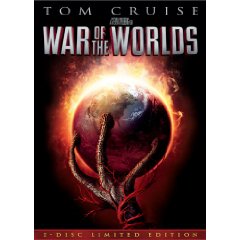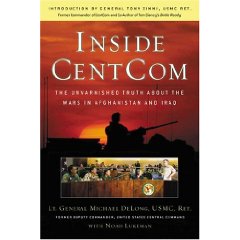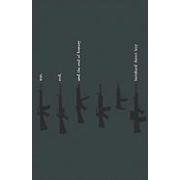H. John Poole
This book is quite extraordinary, and all of the reviews are helpful in appreciating its content. The author has done a brilliant meticulous job of culling through open source references to create a thoughtful, well-structured, and superbly foot-noted document that is nothing less than “Ref A” for what must become the new “American Way of War.”
Big ideas:
1) One third of the world is Muslim, and if we do not restore morality to our form of democratic capitalism, and they adopt asymmetric warfare techniques, we are toast.
2) Iran certainly, and China probably, are fostering global terror as part of their grand strategy–each with different objectives–to end Anerica's status as a super-power.
3) Pakistan, Syria, Egypt, and Saudi Arabia continue to train and support terrorists, with North Korea, Yemen, Sudan and various other countries (e.g. Bangladesh) having diverse roles to play.
4) Hezbollah out of Iran, rather than Al Qaeda out of Saudi Arabia, is the major player in the Iraqi insurgency, and its methods (hostages, suicide bombings, disguised IEDs) are clearly visible across the Iraqi theater of operations and now beginning to appear elsewhere in the world.
5) We cannot win 4th generation asymmetric wars with firepower alone. The heart of the book is a dissection of the Muslim insurgent's inspired excellence at close and asymmetric combat, and a carefully articulated case for getting back into the business of field light infantry that has the skill to infiltrate, surprise, and defeat enemies “mano a mano”–as some of us have been saying for some time (my own phrase has been “one man, one bullet”), but this author does a fantastic job of nailing it in war-fighting terms, modern way must be won by bottom up squad-level observation and skill, not top down command and control wielding firepower that kills 10-100 non-combatants for every US life that it might save (and ultimately–the author is compelling on this point–the deaths of those non-combatants inspire more suicidal terrorists who kill more US fighting men and women than might have died if we had done it right in the first place.
6) The author outlines in detail, with absolutely first-class documentation of his many sources (this is the first book I can remember reading where a single short sentence might contain as many as six different footnotes) the tactical techniques that Muslim radicals have learned to use, to including tunnels and disguises for both themselves and their Improvised Explosive Devices (IED). I agree with General Zinni–this book is required reading for every member of our Armed Forces, from Private to General. If you have a loved one in the Armed Forces, buy them this book and send it to them immediately.
7) Light infantry, acting as a gendarme with superior human intelligence, can nail the terrorists, but unless we want to occupy the world–something impossible to do (see point one)–then we must mobilize all of the instruments of national power and dedicate ourselves to nurturing legitimate effective *indigenous* governments everywhere. That means we must stop supporting 44 dictators, and we must stop imposing immoral capitalism (carpetbagging) on South America, Asia, and Africa.
This book is nothing short of ispirational. Sadly, it will probably be ignored by the Pentagon because, as the author himself points out, the old outdated and ineffective American Way of War is based predominantly on massive firepower and a heavy contractor presence that is most profitable for our arms merchants (see General Smedley Butler, “War is a Raquet”) and our beltway bandits. Consequently, I pray that this book will be bought, read, and acted upon by anyone who has every served in the U.S. military, is serving now, or knows someone now serving or likely to serve (I have three boys, the oldest will be of draft age in two years). What we are paying for now is not working and time is running out. We need a fundamental change in direction, and that will not happen absent a national uprising, or at Tom Atlee would say, “from group magic to a wise democracy.”
The author gets special high marks from me for relating morality and our acknowledgement of God to being able to win at war. He is absolutely right to castigate the Supreme Court for removing God from our national fabric, and points out that the same Supreme Court once declared slaves to be non-humans. He understands, as Clausewitz did, that the moral is to the material by at least one order of magnitude–in today's information-rich era, I would double it. Morality matters, and we have lost that high ground by allowing special interests to dictate America's profiteering foreign policy, rather than letting the common sense of the American people enrich America's foreign policy for the common good of all–as the Golden Rule suggests: do unto others as you would have them do unto you.
If the public demands that its politicians attend to this author's views, and if our military leaders–both suited and uniformed–attend to this book, it will save hundreds of thousands of lives, tens of billions of dollars, and perhaps the American way of life.
See the links at Phantom Soldier: The Enemy's Answer to U.S. Firepower










